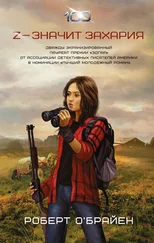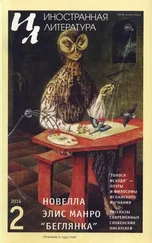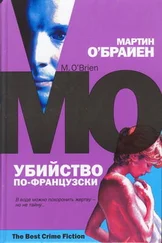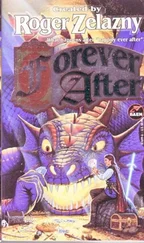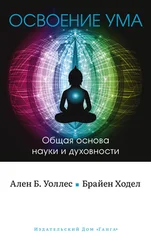“How bad will it get?” I asked. What I meant, but did not want to say, was, are you likely to die? He understood.
“Do you know what an “r” means? It’s a roentgen, a way of measuring radiation. If I absorbed three hundred r’s in that stream I may live through it. If I got four or five hundred, well, then it’s hopeless.”
He said all this in a very matter-of-fact way; he was calm about it. I think I would have been hysterical. However, I tried to stay calm, too, and be practical.
So I said, “While you are feeling better, you should tell me all you can about what I should do. Do you have medicine to take? What should you eat?”
He looked at the bottle of pills, still on the floor where I had put it. “Those won’t help, not now. No, there’s no medicine. In a hospital they give transfusions and intravenous nutrients.”
I can’t do that, of course, so what it amounts to is that there won’t be much I can do, not until I see how the sickness develops. The only thing he seems sure of at this point is that he will have a very high fever and anaemia. It is likely, but not certain, that he will develop some kind of infection like pneumonia or dysentery. One thing I can do will be to try to prevent that. I can boil and sterilize everything he eats and eats from—just like a baby. When I get the cows and chickens back in I can give him fresh milk and eggs to eat; they are nourishing and easy to digest.
And if he is strong enough to walk a little tomorrow I will try to help him into the house. He can sleep in Joseph and David’s room, on a bed. It will be dryer and warmer in the house and easier for me to take care of him.
I’ve just realized that after all this I still do not even know his name.
May 29th
His name is John R. Loomis; he is a chemist from Ithaca, New York, where Cornell University is, or used to be.
He was much better this morning—so much that I began to doubt whether he was really going to get sick again at all. But he said that is normal for radiation poisoning. And it turns out he is a real expert on the subject. In fact, that is, in a way, how he happens to be alive at all, and how he was able to make his way here.
I woke up early, feeling very cheerful, thinking that there was someone to talk to even if he was sick. I brought some more water, heated it over the fire and took a bath, something I haven’t been able to do for a while. (I do it by carrying the warm water into the tub in the bathroom. You can wash quite well with just two bucketfuls once you get used to it.) Then I put on my good slacks. After all, he is “company” in a way, and I thought I should dress up a bit. I felt a little embarrassed at first when I looked in the mirror; but it was just because I am so used to the men’s blue jeans.
Last night before I went to bed (in my own room again) I went out to the chicken yard, opened the gate, and scattered some chicken corn on the ground. So this morning, after I was dressed, I went out and looked. Sure enough, they had come back in, and there were three fresh eggs in the henhouse. I boiled them, toasted the last of the cornbread, made some coffee, and opened a tin of tomato juice. It made a respectable looking breakfast. I put it on a tray—also a jar of raspberry jam—and carried it out to the tent. The sun had just come over the ridge on the east, which meant it was about eight-thirty. Down the valley a couple of crows were calling. I felt happy and excited.
And to my surprise he was sitting up in the doorway of the tent.
“You’re better,” I said.
“For the moment,” he said. “At least I think I can eat something.”
I put the tray down in front of him and he stared at it.
“Amazing,” he said. He just whispered it.
“What?”
“This. Fresh eggs. Toast. Coffee. This valley. You, all by yourself. You are all by yourself?”
It was sort of a key question and he looked a little suspicious as he asked it, as if I, or someone, might be playing a trick on him. Still, there wasn’t any use pretending anything else.
“Yes.”
“And you managed to stay alive, and raise chickens and eggs and cows?”
“It hasn’t been so hard.”
“And the valley. How did it escape?”
“I don’t really understand that. Except that people always used to say the valley had its own weather.”
“A meteorological enclave. Some kind of an inversion. I suppose that’s a theoretical possibility. But the odds—"
I said: “You’d better eat. It will all get cold.”
If he was going to be too sick to eat later, he had better eat now, and build up his strength. As for the valley, I had wondered enough about it, especially in the first few months, when I was still expecting the deadness to creep in from outside. But it did not, and there was not much sense calling it a theoretical possibility when we were in it. At that point I did not know yet that he was a chemist, a scientist. And scientists won’t just accept things—they always have to try to figure them out.
He ate his breakfast. Then, still sitting up, he told me his name. And, of course, I told him mine.
“Ann Burden,” he said. “But weren’t there other people living in the valley?”
“My family,” I said. “And the people who owned the store, Mr and Mrs Klein.”
And I told him about how they drove away and never came back. Also about the Amish, and what my father had seen in Ogdentown.
“I suppose they kept going too long,” he said. “It’s hard not to, especially at first. I know. You keep hoping. And of course, so soon after the war there was still the nerve gas.”
“Nerve gas?”
“That’s what killed most of the people. In a way it’s better. They just went to sleep and never woke up.”
It had taken him ten weeks to get from Ithaca to the valley, and all that way, all that time, he had seen no living thing—no people, no animals, no birds, no trees, not even insects—only grey wasteland, empty highways and dead cities and towns. He had been ready to give up and turn back when he finally came over the ridge and saw, in the late evening, the haze of blue-green. At first he thought it was a lake, and, like all the other lakes he had come upon, dead. But the next morning by better light he saw that this green was different, a colour he had almost forgotten. As I had suspected, he still did not believe it, but came on to investigate anyway. Not until he came over Burden Hill did he know that he had finally found life. I had seen that for myself; that was when I first saw him.
He finished eating his breakfast; he ate it all and drank the coffee. But he was still weak, and started back into the tent to lie down on his sleeping bag.
“Why do you sleep in the tent?” I said. “If you are going to be sick again, the house would be better.”
He said: “The tent is radiation-proof.”
“But there is no radiation in the valley,” I said. “You have learned that.”
“I have,” he said. “But at first I didn’t trust it.”
“But you know now.”
“I do,” he said. “But now you have come back, and the house is yours.”
“If you are sick, and I am to take care of you, I can do it better in the house.”
He did not argue any longer, but got up, very shaky on his legs, and walked a few steps towards the house. He stopped. “I’m quite dizzy,” he said. “I’ll have to rest.”
“You can lean on me,” I said.
He put his hand on my shoulder, leaning quite heavily, and after a few minutes we went on. It took about ten minutes of this to get him to the house, up the porch steps, and into Joseph and David’s room, which fortunately is on the ground floor next to the living room. He lay on David’s bed and went to sleep. I got him a blanket.
Читать дальше
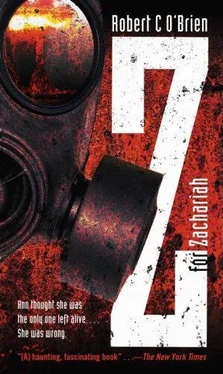
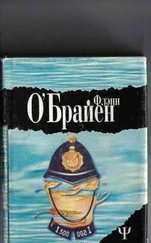
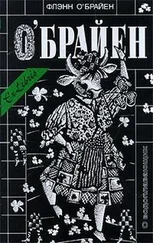
![Роберт Стайн - Дьявольская кровь на завтрак [Monster Blood For Breakfast!]](/books/27867/robert-stajn-dyavolskaya-krov-na-zavtrak-monster-thumb.webp)
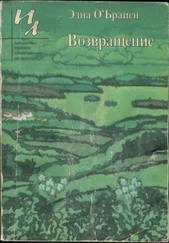
![Роберт Баден-Пауэлл - Искусство скаута-разведчика[Scouting for boys ; Искусство Разведки для мальчиков]](/books/70572/robert-baden-pauell-iskusstvo-skauta-thumb.webp)
